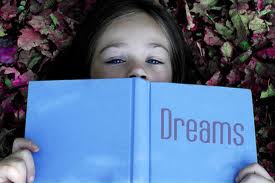They ask me where I have been,
And what I've done and seen.
But what can I reply
Who know it wasn't I,
But someone just like me,
Who went across the sea
And with my head and hands
Killed men in foreign lands...
Though I must bear the blame,
Because he bore my name.
GIBSON- Back
In the case of the WWI (The Great War), it changed the way people looked at wars. It was fought in a different way, with more advanced technology and this implied that soldiers saw death on a huge scale with millions of casualties.
Life at the trenches and the shock some soldiers experienced created a group of poets who wrote in protest of war and its terrible conditions. Watch the following video and answer the following questions
1. Why was the Great War a war of horror for soldiers more than for civilians?
2. What was the idea about war poetry at the beginning of the 20th century?
3. What type of poet is called a "war poet"?
4. What type of soldier was Sigfried Sassoon?
5. What was Sassoon ´s attitude to war and what type of information did he include in his poems?
I knew a simple soldier boy
Who grinned at life in empty joy,
Slept soundly through the lonesome dark,
And whistled early with the lark.
In winter trenches, cowed and glum,
With crumps and lice and lack of rum,
He put a bullet through his brain.
No one spoke of him again.
You smug-faced crowds with kindling eye
Who cheer when soldier lads march by,
Sneak home and pray you'll never know
The hell where youth and laughter go.
Siegfried Sassoon and Wilfred Owen ( another war poet) met during active service. Both endured traumatic experiences. Owen became neurasthenic and Sassoon disillusioned with the conduct of war. In fact, he published in 1917 in The Times a declaration expressing his anger at the War Office. He critisized openly they way soldiers were treated and the living conditions in the trenches. After that, he was sent to a hospital in Edinburgh diagnosed of shellshock. Wilfred Owen was receiving treatment in that hospital too, so they got in touch and exchanged conversations and started a friendship.
For both poets literature was a way of expressing oneself. They wanted to show "the pity of war", the psychological effect of war, the incompetence of the Generals and Officials. Wilfred Owen was very intense and lyrical in his poems. He uses bleak realism with lots of metaphores and great technical skill. Sassoon inspired him and, as Sassoon did, Owen placed great emphasis on writing from experience.
In Dulce Et Decorum Est and Exposure, two of Owen´s poems, pay attention to the imagery used and the way soldiers are described. Look for words which are disturbing, interesting, etc.
What sort of mood do we have in both poems?
Are these poems effective in showing "the pities of war"?
Do both poems show Owen´s view of warfare? Explain and take examples from the poems.
